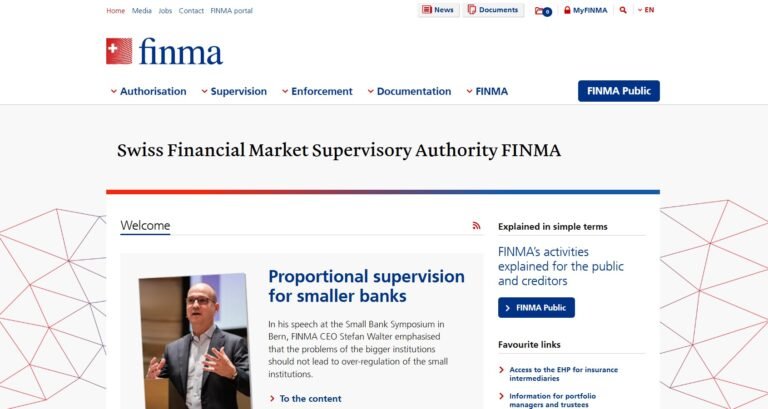Table of Contents
Introduction to Finma
This article offers a detailed Finma review, aimed primarily at two groups: those who suspect they may have been scammed by Finma and want accurate information, and those considering using Finma and seeking trustworthy insights. Finma claims to offer trading services in forex, cryptocurrencies, commodities, and indices, with purported registration in Switzerland.
But the key question remains: is Finma a scam or a legitimate trading platform? This Finma review reveals the warning signs and essential facts you need to be aware of.
Finma: Regulation & Legal Status
Upon investigation, Finma is not regulated by Switzerland’s official financial regulator FINMA, despite the broker’s name suggesting otherwise. There is no verifiable licensing from reputable authorities such as the FCA, ASIC, or CySEC. Instead, Finma appears to be registered offshore or operating without valid regulatory oversight.
This lack of proper regulation poses significant risks, including no client fund protection, no official dispute resolution, and greater chances of fraudulent behavior. Many scam brokers use misleading references to top-tier regulators to build false trust. Learn how to spot a scam broker before it’s too late.
The absence of oversight raises serious questions about whether Finma is a scam.
Trading Conditions & Platform Analysis of Finma
Finma offers a variety of account types, but key details such as minimum deposits, leverage, and spreads are either vague or suspiciously favorable, with leverage reportedly reaching up to 1:500—far beyond typical regulated broker limits. The broker claims to support platforms like MetaTrader 4 and 5; however, availability of these platforms does not guarantee legitimacy or transparency.
There is also a notable lack of information on liquidity providers or confirmation of STP/ECN execution models, which are crucial for fair trading. It is important to understand what to check before signing up with a trading platform. These gaps make it difficult to dismiss concerns that Finma might be a fraud.
Reputation & User Reviews About Finma
Reviews for Finma on platforms like Trustpilot are scarce or show signs of manipulation, with many testimonials appearing fake or unverifiable. Common complaints include withdrawal difficulties, poor customer support, and account freezes.
Furthermore, Finma’s web traffic metrics from SimilarWeb indicate relatively low engagement, which contrasts with claims of a broad user base. These red flags suggest that caution is warranted when considering Finma as a trading option.
How to Test Whether Finma Is a Scam
Begin by verifying the broker’s regulatory status on official sites such as the FCA, ASIC, or CySEC registries. Finma’s absence in these databases is a major warning sign.
Examine real user reviews on trusted forums and platforms, looking for consistent complaints or suspicious praise patterns. Test the broker’s website and platform for usability and professionalism—poor design or unknown software may indicate scam operations.
Review withdrawal terms carefully; any broker requiring crypto-only withdrawals or withholding clear withdrawal policies should be treated cautiously. Avoid brokers that promise guaranteed profits with no risk, as these claims are never genuine.
Lastly, try to access a demo account without deposit requirements to evaluate the platform before investing real money.
Final Verdict & Alternatives
Given the numerous red flags including lack of regulation, suspicious trading conditions, and questionable reputation, we advise avoiding Finma. Protect your investments by choosing brokers regulated by respected authorities like FCA, CySEC, or ASIC.
Reputable alternatives include brokers such as IG, Pepperstone, or FXTM, which offer transparent trading conditions and strong regulatory oversight.
Always prioritize trading with licensed platforms to safeguard your funds and trading experience.


